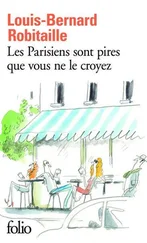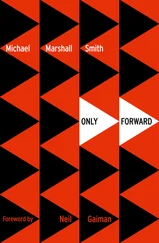The judge took in his haggard face, but couldn’t look Pete long in the eye.
“Right now, where the hell is she?”
There was nothing to say. The waitress came and the judge ordered. When his food arrived the judge split a dinner roll with his red fingers and spread butter into the steaming innards and shoved half the thing into his mouth, chewing with his eyes closed. He drank from his coffee, and Pete sat with him, and then they went to the Ten High for drinks, and Pete listened to him tell broad lies. Late afternoon the judge went back across the street to practice jurisprudence.
September gave over to October. Still no snow. Pinkerton came calling on him, knocking on Pete’s office door. He stood in the doorway holding his cap and wore an unhappy expression like he’d come to evict someone.
“You got a little bit to take a ride?” Pinkerton asked.
Pete asked him what happened. He asked had they found Pearl, the boy. Pinkerton ran a finger along the brim of his hat.
“You’re just gonna need to see.”
They drove through Tenmile in silence, then out of town. They turned on the road to Fourth of July Creek. As they passed Cloninger’s place, Pete watched for him and for Katie but they were not anywhere abroad the property nor together astride one of Cloninger’s horses, which of late Pete had seen them doing. Sometimes clopping through town. He hoped she was well. He knew she was. That was something good.
They rounded a corner and nearly struck a pickup barreling down the dirt road.
“Fuck you,” Pinkerton said, pumping closed his window as they sped into the truck’s cloud of road dust. “You people drive like shit up here.”
He was about to blow past the Pearls’ and Pete said so. He skidded to slow down and make the turn.
“Thanks.”
“It’s easy to miss.”
They went back and forth up the rucked drive and then cut through a swath of sawn saplings and truck-trampled ninebark. They pulled up through the uneven meadow, which was now filled with unmarked cars and a few trailers with federal acronyms.
“I said for you to leave the Pearls alone,” Pete said, taking it all in. “If I’d listened to my own advice, none of this would be happening.”
“You didn’t cause any of this.”
“A social worker darkens your door, you hightail it out the back.”
Pinkerton didn’t smile, didn’t wander his eyes from what was ahead on the road.
An ATF agent assembled an Uzi submachine gun. Others spoke on walkie-talkies. Pinkerton escorted Pete up behind the house and the chicken coop. A cold dry wind bore out of the north and through the trees with a wrathful noise, and tarps held to the ground by stones puffed up where the wind shucked under them so they rose into blue pontoons and deflated and rose again like some kind of industrial bladders. The rock pile behind the chicken coop had been removed from the front of what was now revealed to be a cellar dug out of the mountainside just to the left of the cliff. Lights flared in the cellar — flashbulbs, Pete realized — and a moment later a man backed out with a gurney, and he and the man on the other end of the gurney set it down on the ground next to the tarps.
Pete didn’t understand what he beheld.
The agent with the camera exited the cellar, bent, and then knelt taking pictures. Pinkerton had gone over to the tarps, but Pete found that he could not. Pete saw the sole of a child’s nylon sock, and even from several yards away that it was darned and pushed down around the ankle bone and he had the tremendous urge that someone — not him but someone — lift it up. He couldn’t go over until someone pulled it up. Instead, the men covered the gurney with another tarp.
Pinkerton realized then that Pete had not come with him, that he was sitting on the hillside overlooking the meadow and all the police vehicles and the federal police, and went over to him.
“I knew they were dead. Ben said the baby wouldn’t wake up and the others were acting funny, like cartoons, he said—”
“They were executed, Pete.”
Pete turned around.
“That’s not true. Jeremiah wouldn’t have—”
“Every one of them.” Pinkerton gestured toward the tarps. “Go see for yourself. Shot in the temple.”
“Fuck they were. They were sick .”
“Sick with what?”
“I don’t know. They were just sick. And I’m sure they… they were afraid to come to town to the doctor. Because of the arrest. They—”
Pinkerton grabbed Pete’s arm.
“Come on. Come see. With your own eyes.”
Pete yanked his arm free but went with Pinkerton to look. At impossibly small wrist bones and metal zippers and plastic barrettes. Everything of cotton was gone to decomposition, but the cotton-polyester pajama top, the nylon yarn socks, the buttons all remained.
They were so exquisitely little.
“I didn’t bring you here because I’m morbid, Pete. I wanted you to see who you were dealing with all this time. A man who killed his own wife and children.”
“I gotta get out of here.”
Pete got up and started to walk down the hill.
“If there’s anything you’re not telling us, now’s the time. You see what he’s capable of? Do you see?”
Pete kept walking, through the cars and vans and trailers, down through stamped earth and trampled gooseberry and then the alder and larch. He descended the mountain on the gravel road and after a while arrived at the mucky shore of a pond at the back of Cloninger’s property. The dog came barking through Cloninger’s pasture as Pete approached. He showed the animal his palms and walked on as the dog fell in with him and then practically escorted him to the back door. Cloninger’s children played tag in the yard. Katie slid out of the tire swing and ran over to him as if it was the most normal thing in the world, Pete coming out of the woods to see her. Maybe it was fairy tales that inured her to such weirdness, or her mother. Maybe it was the state of childhood to not question and fear everything, it’d been so long, Pete couldn’t remember.

Does it say in her case notes that she attacked a staff member? Did they revoke her privileges? Does it say that she was given mood stabilizers for several weeks? Does it recommend that she be transferred to the state hospital in Lakewood for evaluation?
Yes. But Washington law stipulated that a court must order such a move within thirty days of an official request, and the official request was lost or misprocessed.
So she settled into a routine. She ate her meals and went to her meetings and did craftwork. She played checkers with the girls, so many girls. Weepy girls, angry girls, mutually molesting girls, cutting girls, sneaking girls, arguing girls, hugging girls, girly girls, womanly girls, crazy girls. She tried to be the mature girl. The solid girl. The quiet girl who did the program. She talked during circle time but only in generalities or manufactured specifics. What kinds of people you meet out there. Hard-core pervs and gentle souls who will give you anything so that you wonder how they survived everything. It’s what the world is going to look like someday, she says. A world of chasers and just a few runners. Takers. No carers.
Everybody wyoming.
She sat on a cot and wailed. She wasn’t ashamed of anything.
So was she released to Butler?
The social worker? Yes.
And when she told Butler she had friends staying at the Golden Arms, his eyes lit up, and she could see he felt like he’d accomplished something bringing her back to her pimp’s apartment. Something true about all of life in that irony, in Butler idly surveying the apartment. In asking where was Pomeroy and not really listening to the answer. In saying that he’d check back in a week.
Читать дальше













